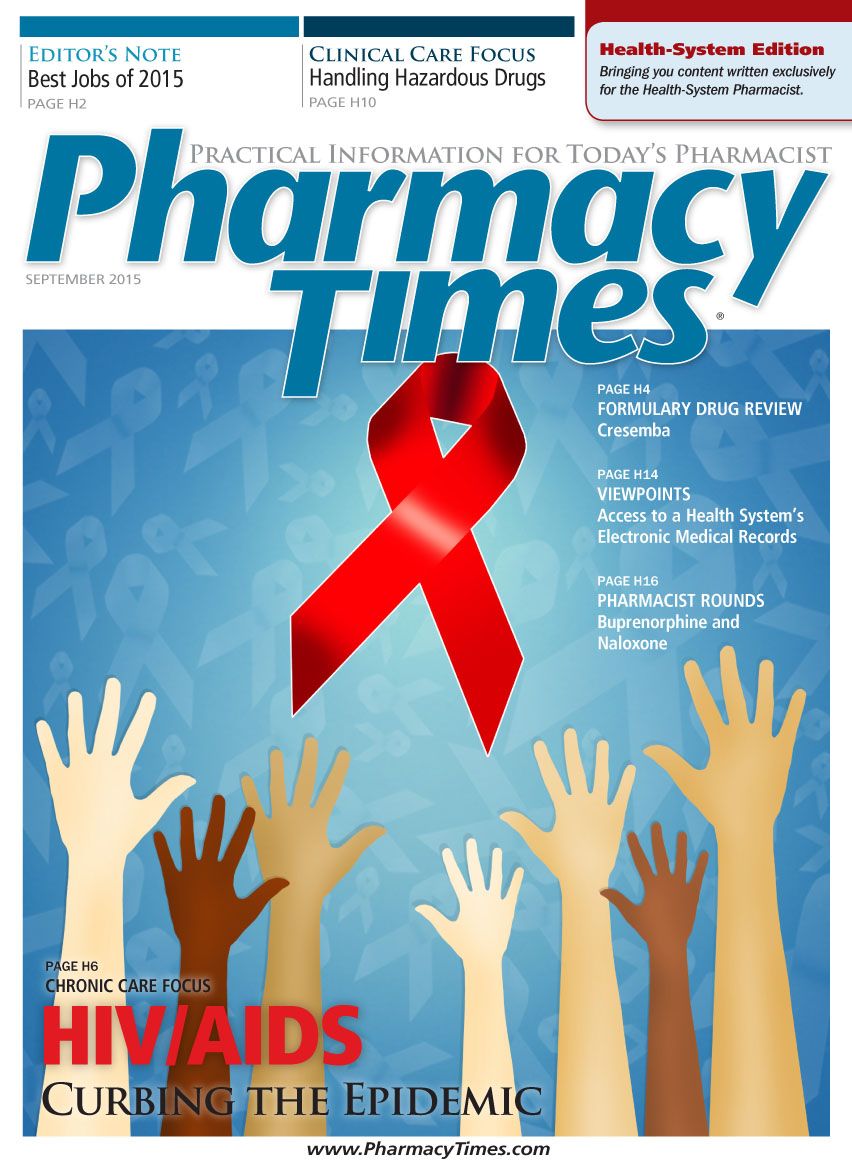Publication
Article
Pharmacy Practice in Focus: Health Systems
Best Jobs of 2015
In the recently released listing of "Best Jobs of 2015" from CareerCast.com, pharmacists were slotted at 27 of 200 jobs that were ranked.
In the recently released listing of “Best Jobs of 2015” from CareerCast.com, pharmacists were slotted at 27 of 200 jobs that were ranked.1 Not only was this a strong showing for our profession, but the description of the profession was even better: “advises physicians and patients on the effects of drugs and medications” and “prepares and dispenses prescriptions.” On a separate list by the same organization, pharmacist was ranked as the 10th highest paying job in 2015.2
To better understand the methodology behind this ranking, 4 categories were scored to determine overall ranking: environment, income, outlook, and stress. These were defined as:
- Environment: encompasses both the physical and emotional demands of the job
- Income: incorporates both mid-level income salary and growth potential
- Outlook: ranks the potential for employment growth
- Stress: calculates the amount of stress experienced while working on the job
In the pharmacist rankings, midlevel income was $119,065, with a relatively low hiring outlook. In addition, the work environment was ranked in the middle of the scale and the stress level was at the lower end.
To contrast against the best jobs listed, some of the worst jobs based upon this ranking system were newspaper reporter, lumberjack, enlisted military personnel, cook, and broadcaster.
After reviewing this information, there are a few perspectives I would like to share:
- Description of the profession. CareerCast’s primary description of pharmacists is that we “advise physicians and patients” about medications. While they did mention our dispensing role, the primary one typically identified by those outside of the profession, it was listed second in this description. It is encouraging to recognize that the image others have of pharmacists is shifting toward a patient-care perspective. As more people within the community transition toward this view of what a pharmacist does, the patient-care aspects of the role will continue to be embraced by those within and outside of the profession. Inevitably, the community will come to demand and expect these services, forcing pharmacists to prioritize this above everything else. Advising patients and physicians will become our primary duty, followed by dispensing medications.
- Mild projected job growth. I think we are all concerned about the future with regard to supply and demand for pharmacists. With the abundant number of pharmacy graduates and the modest projected growth in new jobs, there appears to be a mismatch, and this concerns many. Although the future ranking accounts for future growth potential, the overall score for pharmacy is not as high as we would want and does nothing to alleviate our fears.
- Lack of stress in the job function. I think this is the ranking that most would challenge. While our stress level might be lower than that of other professions, I often hear about how stressful our jobs are. Whether it is because we are continually asked to do more with fewer resources, to do new activities that we do not necessarily feel comfortable with, or to take on new responsibilities while continuing to do our present ones as we fear for our jobs, I hear mention of how stressful our jobs are any time I talk to a pharmacist. Although that might be the state we are all in, compared with other jobs listed in the report, our stress is ranked relatively low on the overall scale and deemed by outsiders to be not that bad.
Although we all have our reasons to challenge these data, let us take comfort in knowing that others view pharmacy as a great way to spend a career, having a good salary and moderate level of stress. In addition, we are seen as helping patients make the best use of their medications. I know there are frustrations that we all share and things that we would like to change, but if we take a dispassionate perspective, most pharmacists are pleased in their overall career choice and the projections for our profession into the future.
Stephen F. Eckel, PharmD, MHA, BCPS, FCCP, FASHP, FAPhA, is associate director of pharmacy, University of North Carolina Hospitals, and clinical associate professor and divisional director at the University of North Carolina Eshelman School of Pharmacy.
References
- CareerCast.com staff. The best jobs of 2015. CareerCast website. www.careercast.com/jobs-rated/best-jobs-2015.
- CareerCast.com staff. CareerCast website. The highest paying jobs of 2015. www.careercast.com/jobs-rated/highest-paying-jobs-2015.
Newsletter
Stay informed on drug updates, treatment guidelines, and pharmacy practice trends—subscribe to Pharmacy Times for weekly clinical insights.







